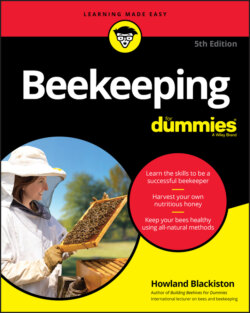Читать книгу Beekeeping For Dummies - Howland Blackiston - Страница 23
BEE POLLEN, HONEY, AND ALLERGY RELIEF
ОглавлениеPollen is one of the richest and purest of natural foods, consisting of up to 35 percent protein and 10 percent sugars, carbohydrates, enzymes, minerals, and vitamins A (carotenes), B1 (thiamin), B2 (riboflavin), B3 (nicotinic acid), B5 (panothenic acid), C (ascorbic acid), H (biotin), and R (rutine).
Here’s the really neat part: Ingesting small amounts of pollen every day can actually help reduce the symptoms of pollen-related allergies — sort of a homeopathic way of inoculating yourself. The key is to use pollen that is harvested from your general region.
Of course you can harvest pollen from your own bees and sprinkle a small amount on your breakfast cereal or in yogurt (as you might do with wheat germ). But you don’t really need to harvest the pollen itself. That’s because raw, natural honey contains bits of pollen. Pollen’s benefits are realized every time you take a tablespoon of honey. Eating local honey every day can relieve the symptoms of pollen-related allergies if the honey is harvested from within a 50-mile radius of where you live or from an area where the vegetation is similar to what grows in your community. The best part if you have your own bees, allergy relief is only a sweet tablespoon away!
Apitherapy is the use of bee products for treating health disorders. Even the bees’ venom plays an important role here — in bee-sting therapy. Venom is administered with success to patients who suffer from arthritis and other inflammatory/medical conditions. This entire area has become a science in itself and has been practiced for thousands of years in Asia, Africa, and Europe. An interesting book on apitherapy is Bee Products — Properties, Applications and Apitherapy: Proceedings of an International Conference Held in Tel Aviv, Israel, May 26–30, 1996, published by Kluwer Academic Publishers.
